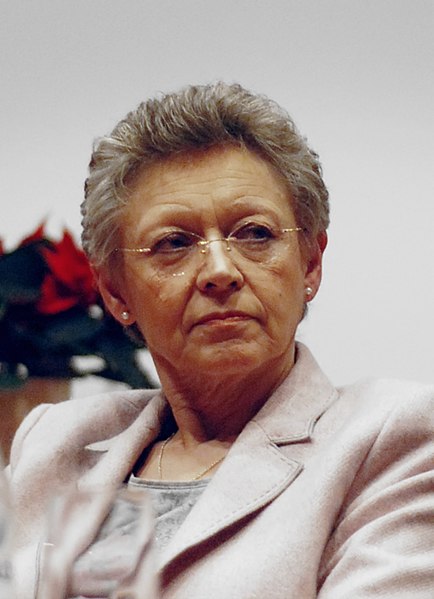An encomium to
international law is headline news this morning. Not, alas, because of its content, but rather because of its source:
Pope Benedict XVI. In his
address to the General Assembly of the United Nations yesterday, the pope warned against an international order dependent solely on the whims of sovereign countries. "Discernment, that is, the capacity to distinguish good from evil," he said,
shows that entrusting exclusively to individual States, with their laws and institutions, the final responsibility to meet the aspirations of persons, communities and entire peoples, can sometimes have consequences that exclude the possibility of a social order respectful of the dignity and the rights of the person.

Benedict (right) looked, rather, to transnational and international institutions as vehicles to promote human dignity, using a "common language" and not "a relativistic conception." For the pope religion is one such transnational vehicle, of course; "relativist" is, after all, an antonym of "catholic," itself a a synonym of "universal." Yet he devoted much of his address to a vehicle typically expressed on the temporal plane: human rights, the promotion of which Benedict called
the most effective strategy for eliminating inequalities between countries and social groups, and for increasing security.
Even as he found traces of human rights in the centuries-old writings of Catholic scholars like
Augustine and
de Vitoria, the pope found its contemporary source in a 20th C. secular instrument, the 1948
Universal Declaration of Human Rights. In tacit reprimand of those who would privilege civil and political rights over economic, social, and cultural rights -- or vice versa -- Benedict reaffirmed the 60-year-old decision to intertwine those rights:
[E]fforts need to be redoubled in the face of pressure to reinterpret the foundations of the Declaration and to compromise its inner unity so as to facilitate a move away from the protection of human dignity towards the satisfaction of simple interests, often particular interests. The Declaration was adopted as a 'common standard of achievement' (Preamble) and cannot be applied piecemeal, according to trends or
selective choices that merely run the risk of contradicting the unity of the human person and thus the indivisibility of human rights.
Perhaps most notable was the pope's embrace of "
responsibility to protect," the international law concept that each nation-state has the primary duty to protect persons within its jurisdiction and control, but if it does not do so, the international community as a whole has a duty to protect those persons against, as the pope put it, "grave and sustained violations of human rights, as well as from the consequences of humanitarian crises, whether natural or man-made." Use of means permitted by the the law of the
U.N. Charter is not "an unwarranted imposition or a limitation of sovereignty," the pope maintained, for "it is indifference or failure to intervene that do the real damage."
Some approach the "responsibility to protect" with skepticism, wondering whether the energy spent on pushing a new concept with a catchy acronym --
R2P -- might be better spent on working to strengthen the U.N. Security Council and other pre-existing mechanism that in the end would have to effect any such intervention.
I'm among those skeptics,
so too José Alvarez, Columbia law professor and immediate past president of the American Society of International Law. Despite disagreement on means, however, we all agree on the ultimate goal, greater enforcement of human rights. And so yesterday's strong statement in support of that objective, from one of the globe's premier norm-shapers, is welcome.
(cross-posted at Slate's Convictions blog)
That the Holy See is often treated as a state is deeply troubling, for several reasons. For one thing, the Catholic Church isn't truly a sovereign nation; to allow it to play one on the international stage perverts the meaning of statehood.














